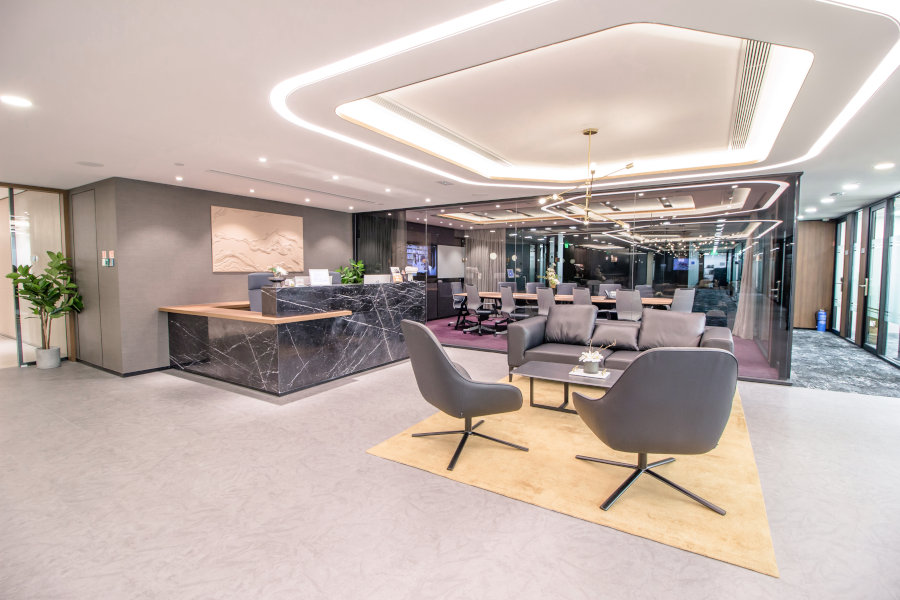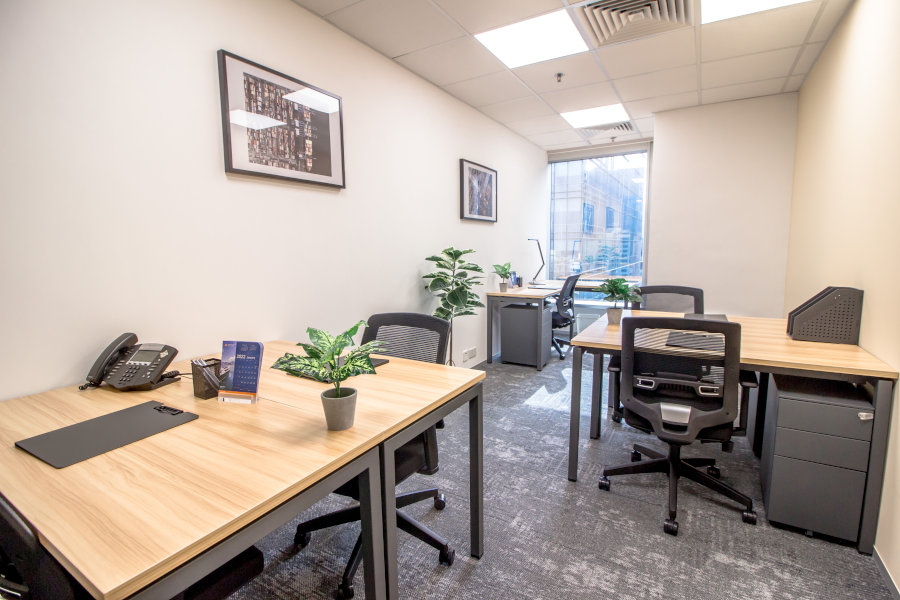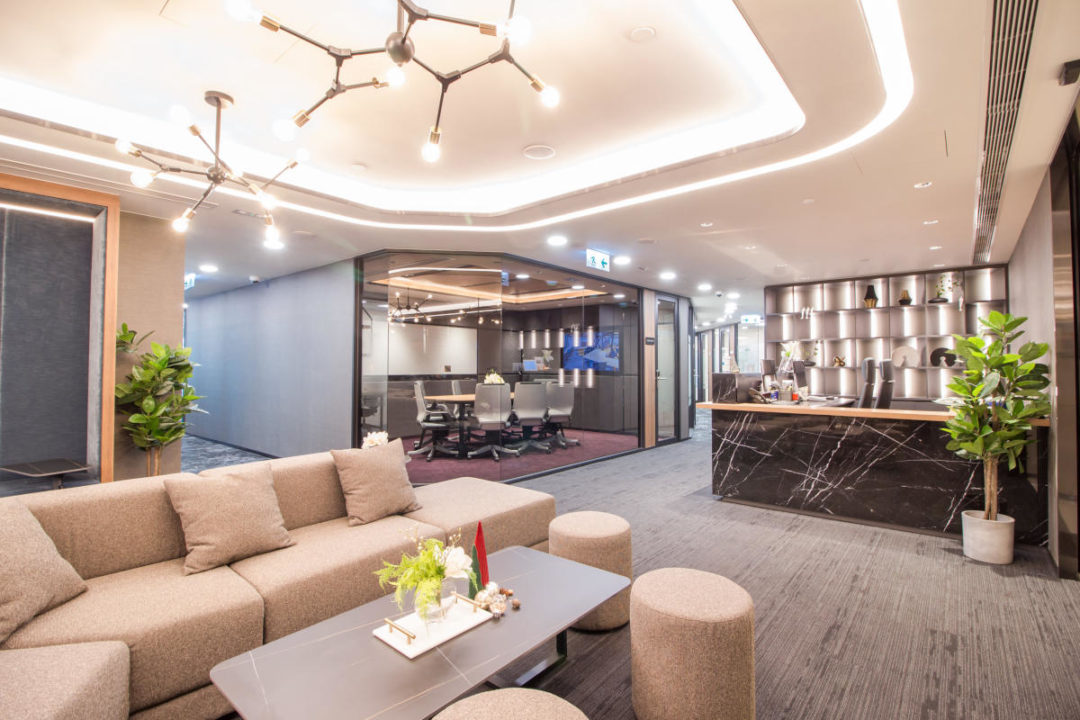In Collaboration with Compass Offices
Hong Kong has ranked as the freest economy in the world by a Canadian think tank for over 30 years. Incorporating a new company or opening a new office location in the city is a lucrative decision. The main office types available in Hong Kong are conventional office leases, serviced offices, co-working spaces, and shared office spaces. Serviced offices are increasingly popular workplace solutions that offer the benefits of private offices combined with the flexibility of short-term rentals.
How to choose your office in Hong Kong
The following factors will affect the price of your office rental, convenience of your commute, and overall employee satisfaction. Have these criteria in mind when defining a budget, your enterprise’s first step into renting an office.
Lease length
If your company is well-established and the headcount is unlikely to change significantly in the coming years, you can potentially look for a longer office lease. Small and medium-sized businesses may prefer to go for a shorter duration of six months up to a year.
Building grade
There are three office building grades in Hong Kong: Grade A, B, and C. Grade A buildings are the most expensive, with the most luxurious-looking lobbies, highest-tech fit-outs, and various facilities like dining, gyms, plentiful parking, city views from the upper floors, and outdoor spaces. Grade C is the cheapest building grade, with older facades, low accessibility, and few or no amenities.
Office amenities
When considering amenities of commercial properties, try to balance monthly costs and convenience. Newer and abundant amenities will push the price up, but things like outdoor space, fitness rooms, parking, and F&B can significantly improve the office experience.
Location
Renting an office in Central Business Districts on Hong Kong Island and Kowloon like Central, Admiralty, Causeway Bay, and Mong Kok is the most expensive because of the concentration of esteemed companies, Grade A buildings, accessibility to MTR stations, and proximity to clients. Cheaper office locations may be situated in industrial buildings or far away from city centres. You can consider how important it is to have a prestigious business address and where your team lives among other factors, when choosing your workplace location.
Capacity or number of seats
You don’t want to end up paying for more space than you need, or on the other hand, doing all the paperwork just to find out your office is too cramped. The general rule is that one person requires about 10 to 16 sq’m of office space. Alternatively, serviced offices calculate rental prices per desk.
What types of offices to rent in Hong Kong?

Choosing the appropriate type of workspace for your business will depend on your size, growth rate, and also what will be the most conducive working environment for employees.
Leasing your own office
Leasing your own office requires building an office from an empty space. Traditional offices cost a lot upfront to renovate, fit out with HVAC (heating, ventilation, air conditioning), decorate, and furnish. A traditional office rental requires a minimum commitment of two years.
Co-working spaces
Co-working spaces and business centres have shared breakout and meeting spaces, allowing start-ups and established companies to meet in a way that’s not possible in conventional offices.
These kinds of shared workspaces do not always offer private, dedicated office spaces like business centres do. The fit-out of co-working spaces is more casual and may not be presentable for entrepreneurs looking for a more professional working environment.
Often offered in business centres, which are like hives for flexible workspaces, digital nomads and small companies can choose to share a single office space together, which can be beneficial financially and for collaboration.
Serviced offices
Serviced office rental prices include use of shared amenities like meeting rooms, pantries, and business lounges; maintenance and cleaning fees; client service support; and 24/7 exclusive access to secure office areas.
Also called ‘business centres’ in Asia, they allow you to rent for as short as a few weeks. Some serviced offices also offer co-working spaces and day desks, which can be rented by the hour or day.
Cost-efficient serviced offices come pre-furnished and business-ready. Video conferencing tech, cleaning service, and more extras are included so you’re spending less upfront.
Why a serviced office is a wise choice

Serviced offices are the flexible workplace answer that’s arisen in response to the costly rental price and rigid lease period of traditional offices. The key benefits of business centres are:
- Contract periods of weeks or months – You’re able to commit to however long you need the space. You’re freed from worrying about whether you’ll be able to afford or fit into the office in a year’s time.
- Accommodate 1 to 100+ employees – If your team changes in size in a short period of time, it’s a simple process to scale your office space up or down.
- Shared facilities like meeting rooms, receptions, pantries, lounges – These facilities are maintained by office management and usually included in the rental cost.
- Transparent pricing scheme – Rental cost is calculated in a simple way; per workstation. Also, there are typically no hidden fees or initial capital expenditure (costs associated with fitting out and furnishing the space), so you can free up capital for other initiatives.
- Business services – Reception team, virtual office (get a business address and telephone number without physically moving into an office), printing, and more. For example, Compass Offices offers all of these business services plus concierge service, accounting, corporate secretary, and company registration.
- Corporate image – Serviced offices offer professional exteriors that are appropriate for client servicing. They also offer innovative services, since the industry is still growing.
FAQ about renting an office in Hong Kong
What is the best office type for my company?
Co-working spaces may be more suitable for young start-ups and individual entrepreneurs. Serviced offices, on the other hand, accommodate both small and large scale companies due to their professional image and convenience.
When is the right time to rent an office in Hong Kong?
When considering the best time to start renting an office, factor in budget and your last six months’ headcount fluctuation. It’s also a great idea to get your employees’ feedback on what their preference would be, to ensure long-term employee satisfaction.
Why are serviced offices a good option for Hong Kong companies?
The cost-effectiveness and agility that business centres offer make them a great option for companies that are just starting up or MNCs opening satellite offices and new branches. Some serviced office providers also do custom office spaces based on clients’ needs.
Get in touch with Compass Offices
Compass Offices is a network of business centres in nine cities: Hong Kong, Shanghai, Singapore, Sydney, Melbourne, Manila, Tokyo, Ho Chi Minh City, and Kuala Lumpur, helping young and established incorporations stay agile in APAC. Get in touch with their team to find or custom-create your flexible workspace solution.

- Website: https://www.compassoffices.com/
- Phone: +852 3796 7188
- WhatsApp: +852 6396 7907
- Address: Locations in Sheung Wan, Central, Admiralty, Causeway Bay, North Point, Tsim Sha Tsui
Image credits: Compass Offices




